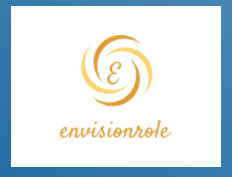Managing a successful paid media campaign now requires a deeper understanding of both platform rules and evolving consumer behaviour.
PPC strategies that once delivered strong results may no longer be effective due to changes in algorithms, automation, and privacy expectations.
Adapting to these shifts is essential for optimizing performance and ROI.
Three PPC strategies that are no longer effective and how to modify them for greater success.
1. Don’t Bid on Every Keyword Variation
Do: Focus on Keyword Champions
Why It’s Obsolete:
In the early days of PPC, advertisers bid on every keyword variation across multiple match types to maximize reach.
However, advancements like close variant matching have rendered this approach inefficient.
Bidding on too many keywords leads to wasted budgets, diluted campaign focus, and diminished ROI.
The Solution: Keyword Champions
Successful advertisers now focus on “keyword champions”—key terms that encompass broad search intent while minimizing redundancies.
Benefits:
Cost Savings: Fewer bids mean better budget allocation and lower costs.
Efficiency: Eliminates unnecessary complexity, allowing campaigns to run smoother.
Higher Conversion Rates: focuses on high-performing keywords that align with strategic objectives.
How to Implement:
Limit ad groups to 2-3 exact match keywords.
Include one broad-match long-tail keyword to capture diverse queries.
Convert exact match keywords into negatives for broader ad groups to maintain balance.
By streamlining the approach, campaigns can achieve better results without keyword overload.
2. Don’t Stick to Manual Bidding on Large Accounts
Do: Embrace Automated Bidding
Why It’s Obsolete:
Manual bidding once allowed advertisers to have granular control over their campaigns.
However, managing bids manually across large accounts is time-consuming and prone to errors, especially as algorithms become smarter.
The Solution: Automated Bidding
Modern platforms leverage machine learning to optimize bids based on over 60 signals, including time, device, location, and audience behaviour.
Automated bidding removes inefficiencies and maximizes ROI.
Benefits:
Improved Efficiency: Reduces the time spent managing bids manually.
Access to Advanced Signals: Automation uses data points unavailable to manual bidders.
Scalability: Simplifies campaign management, even for large accounts.
How to Implement:
Start with strategies like maximising conversions or targeting CPA.
Use workflow tools such as Adzooma to maintain oversight while automating routine tasks.
Incorporate scripts and rules for added customization and control.
Adopting automation allows marketers to focus on strategic initiatives while ensuring campaigns remain profitable.
3. Don’t use persistent remarketing alone.
Do: Foster Consensual Conversations
Why It’s Obsolete:
Traditional remarketing targeted all website visitors, bombarding them with ads regardless of their intent.
However, in a privacy-first web, indiscriminate tracking has lost its appeal and effectiveness.
The Solution: Consensual Conversations
Rather than relying on old remarketing methods, focus on building meaningful connections with users who willingly share their data.
Benefits:
Higher Conversion Rates: Users who opt in are more likely to convert.
Compliance-Friendly: Aligns with evolving privacy regulations.
Stronger brand relationships: build trust and loyalty by respecting user preferences.
How to Implement:
Capture First-Party Data: Use engaging landing pages to encourage email sign-ups or other direct data sharing.
Create Custom Audiences: Segment data based on user engagement to deliver relevant messaging.
Prioritize Value: Offer incentives like discounts or exclusive content to encourage data sharing.
By focusing on consensual engagement, campaigns can deliver better results while building trust and long-term customer loyalty.
Sticking to outdated PPC strategies can waste resources and hurt campaign performance.
Embracing innovations like keyword champions, automated bidding, and consensual remarketing ensures campaigns align with today’s best practices.
Automation tools and privacy-friendly tactics not only improve ROI but also future-proof campaigns in an evolving digital landscape.

